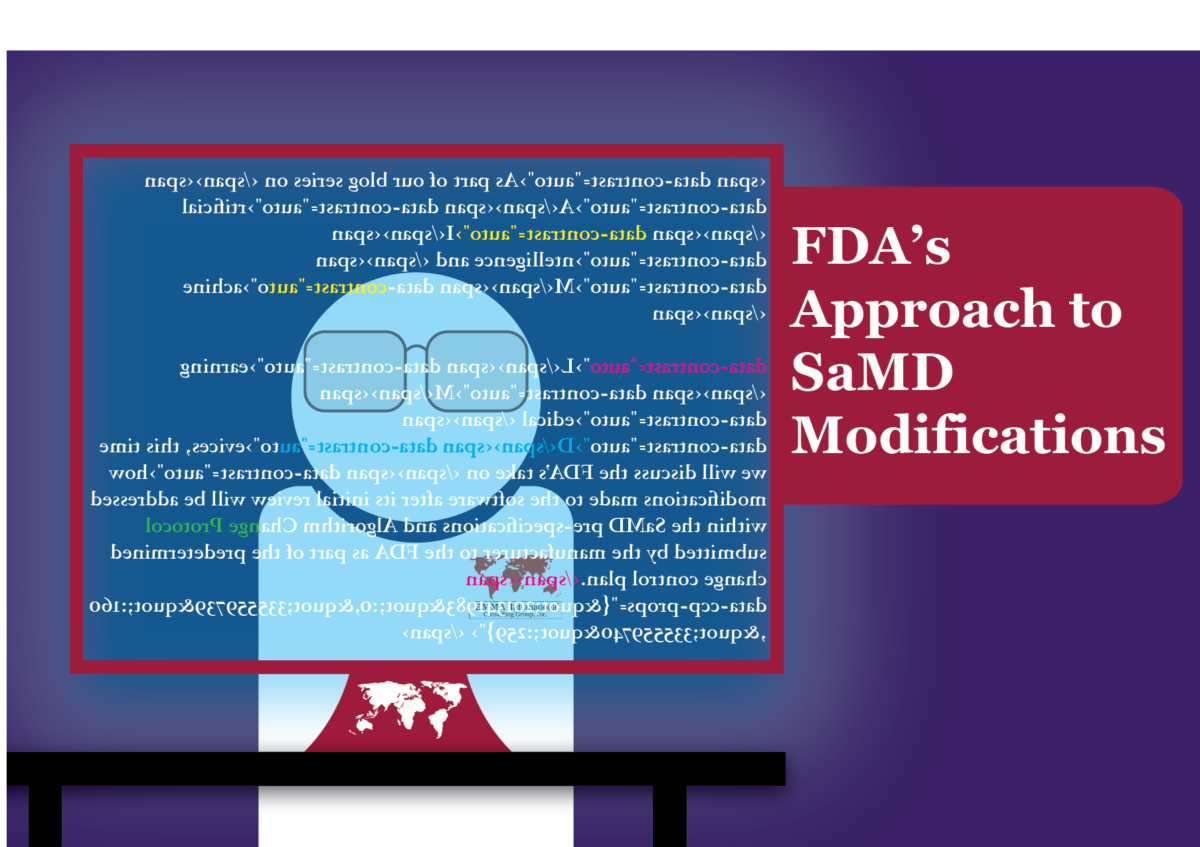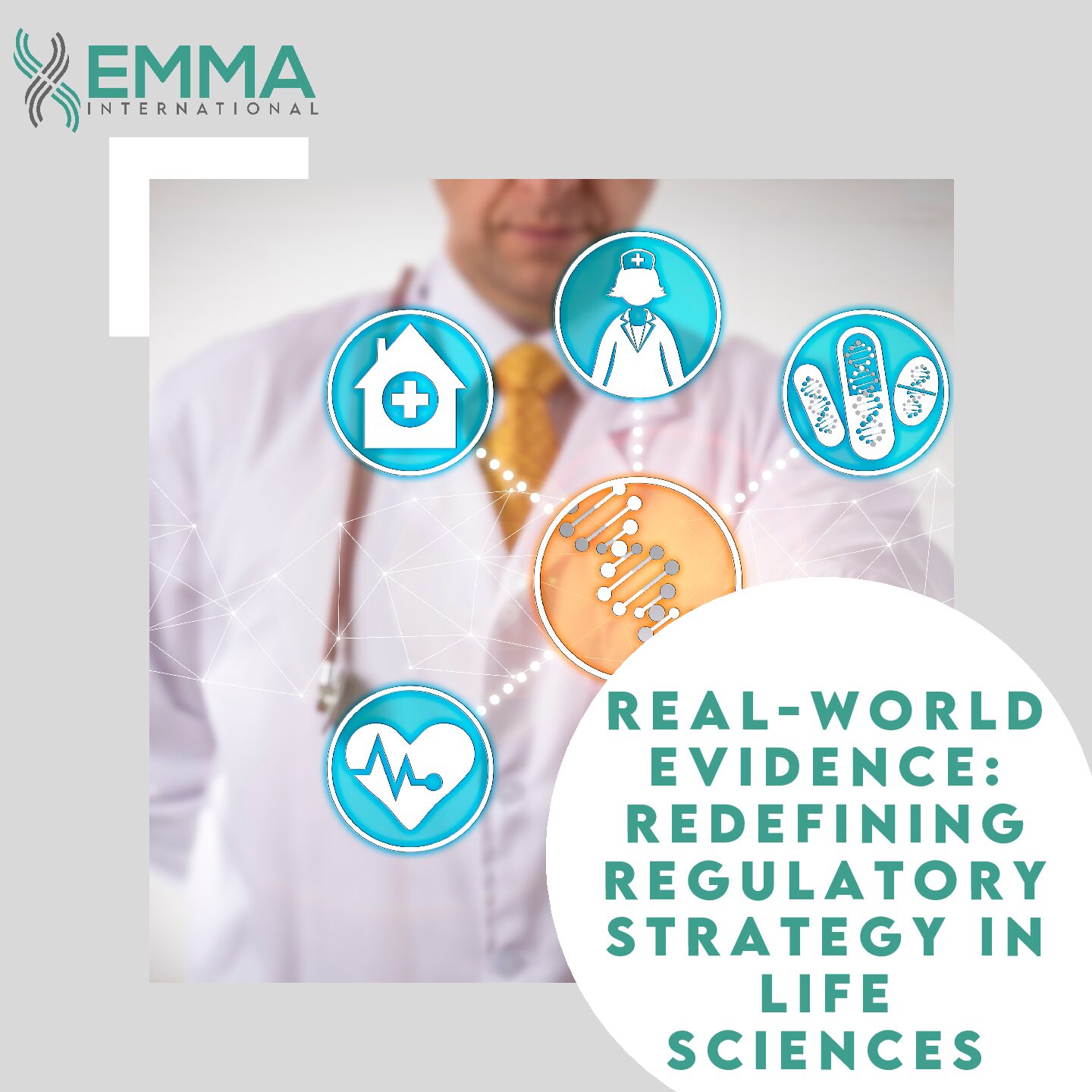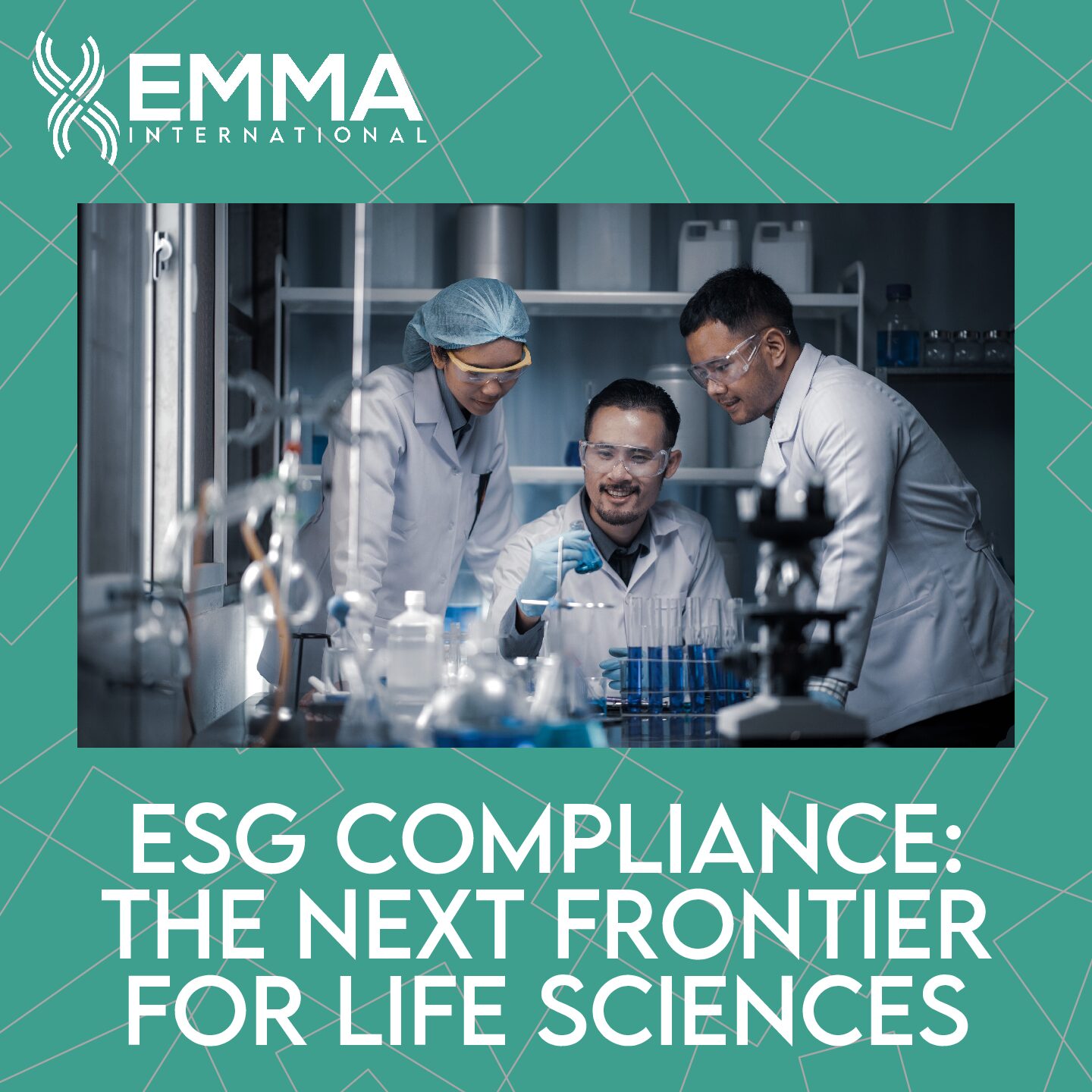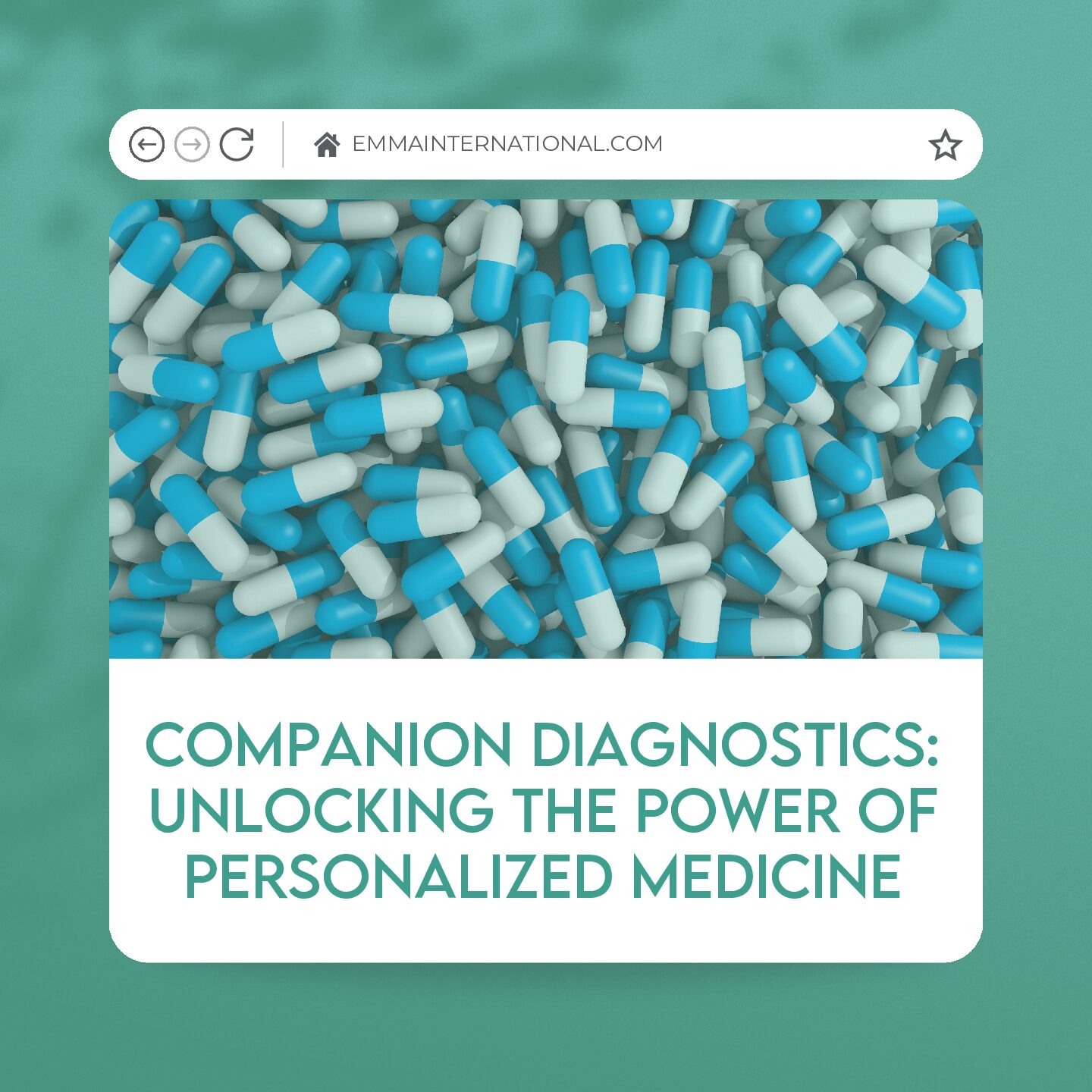As part of our blog series on Artificial Intelligence and Machine Learning Medical Devices, this time we will discuss the FDA’s take on how modifications made to the software after its initial review will be addressed within the SaMD pre-specifications and Algorithm Change Protocol submitted by the manufacturer to the FDA as part of the predetermined change control plan.
For reference, you can read the following previous blogs on AI/ML devices:
ARTIFICIAL INTELLIGENCE & MACHINE LEARNING TECHNOLOGIES
QUALITY SYSTEMS AND GOOD MACHINE LEARNING PRACTICES
INITIAL PREMARKET ASSURANCE OF SAFETY AND EFFECTIVENESS FOR AI/ML MEDICAL DEVICES
After a SaMD receives market authorization from the FDA, any modifications to its software would have to go through a pre-market review as outlined in the software modification guidance- Deciding when to submit a 510(k) for a software change to an existing device.
Due to the continuous learning and adaptive nature of AI/ML devices, these capabilities would be considered modifications. The FDA’s new guidance allows for a risk–based approach to tackle such modifications without having companies worry about submitting a pre-market submission every time the device modifies its algorithm based on real–world data.
A SaMD device manufacturer or developer is expected to evaluate the modifications based on the risks to the patients as outlined in the software modifications guidance, perform a risk assessment and perform appropriate risk mitigation activities.
The current software guidance results in either:
- A new 510(k) for the proposed modification
- Documentation of the modification in the risk management file
According to the FDA’s new guidance, if the AI/ML developer has a SaMD pre-specifications and an Algorithm Change control Plan approved as part of the predetermined change control plan, and if the changes or modifications to the device are within the bounds of the SPS and the ACP, then the manufacturer can simply document the change within the change history/change control program devised within their quality system with appropriate records.i
In cases where it is anticipated that the modifications may change the intended use, beyond the intended use for which the SaMD was previously authorized, FDA will conduct a ‘focused review’ of the SPS and ACP that includes the said intended use modification in its plan.
FDA suggests that manufacturers engage with them on SPS and ACP for a particular SaMD. Some options include:1
- Contact the appropriate review division of the FDA to determine if the modification fits the current SPS and ACP.
- Submit a pre-sub for a discussion with the FDA on the modification.
- Submit a premarket submission or application of the modification to the SPS and ACP.
FDA is accepting feedback on this proposed guidance on the public docket. FDA seeks specific feedback on the following items:1
How should FDA handle changes outside of the approved SPS and ACP?
How should FDA go about conducting the proposed focused review of the SPS and the ACP and what content should it include?
You can submit your suggestions or comments on FDA’s Proposed Regulatory Framework for Modifications to Artificial Intelligence/Machine Learning (AI/ML)-Based Software as a Medical Device (SaMD) – Discussion Paper and Request for Feedback using the following link: https://www.regulations.gov/comment?D=FDA-2019-N-1185-0001
For any other questions that you may have about the proposed regulatory framework, please contact us at 248-987-4497 or info@emmainternational.com.






